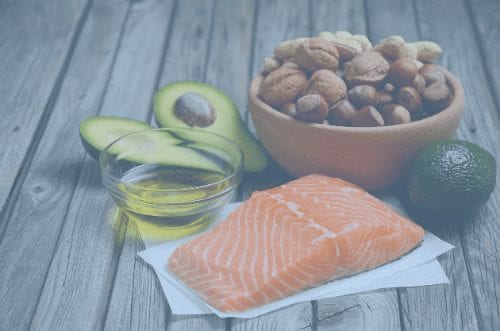Medicine or Malarkey: Are All Fats Bad Fats?
May 11, 2017

Many people think of fat as the enemy when it comes to heart health. And many of us may feel like we’ve been trained to think of fat pretty negatively — remember the low-fat diet craze of the 90’s? Guess what? Not all fats are bad after all. In fact, poly and monounsaturated fats reduce levels of LDL cholesterol and help sustain healthy blood sugar levels. These characteristics make them good for your heart and help them protect you from type 2 diabetes. Wondering which fats you should eat, and how? These six foods are chock full of healthy fats:
1. Avocados
This food has become trendy not just for its indulgent texture but also for the healthy fats it provides. You might want to add avocado on a sandwich in place of cheese, or mash it up with some lemon, hot pepper and chopped tomato for a simple guacamole. Perfect for a healthy lunch!
2. Nuts
Walnuts are one of the best sources of omega-3 fatty acids, which are a type of polyunsaturated fat. Omega-3s are essential to cell development and brain growth. They also protect the heart. While walnuts are the nut with the most omega-3s, you can also get benefits from almonds, pistachios and other nuts. A 1/4 cup serving each day is just right.
3. Olives
A cup of olives provides 15 grams of fat, which is mainly of the monounsaturated sort. Try including some on a salad, in a topping for pasta or on an antipasto plate. You can also blend them up with garlic, olive oil, lemon juice and parsley for a delicious tapenade.
4. Salmon
Salmon and other fatty fish like trout, sardines and mackerel are all great sources of healthy polyunsaturated fats. Experts recommend at least two servings of fish per week for heart health. Salmon is great steamed and served with lemon juice. You can also slather it with mustard and roast it!
5. Olive oil
Like olives, olive oil provides healthy fats. Switch up your cooking oils and use it in place of other choices like vegetable oil. Regular olive oil is good for most cooking, as long as you use it below its smoke point (for refined olive oil, that’s usually around 468°F). Save the flavorful extra virgin olive oil for topping salads, dipping bread and adding to pesto.
Of all the items on this list, this is probably the one you are least likely to currently have on your kitchen. Flaxseed can be added to breads, salads or granola when used whole. When ground, it can make a nutty and nutritious addition to smoothies. Keep a bit in the fridge and add a small quantity wherever you’d use other nuts and seeds.
By making small changes in your diet, you may see dramatic results over time. Use these and other healthy fat sources to protect your heart while enjoying delicious meals!
